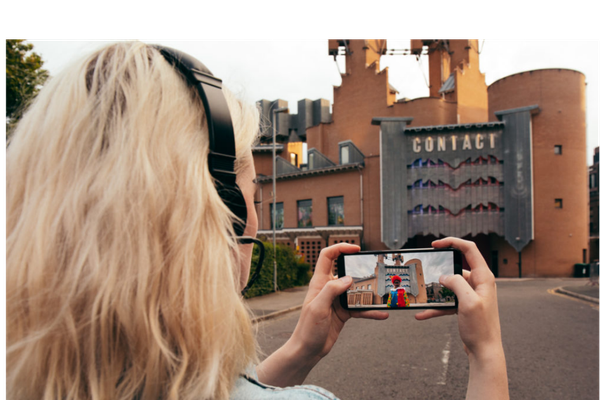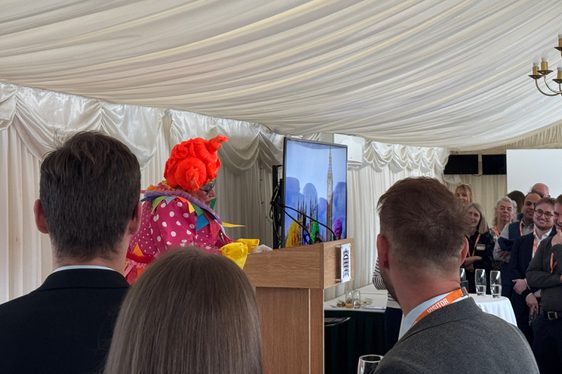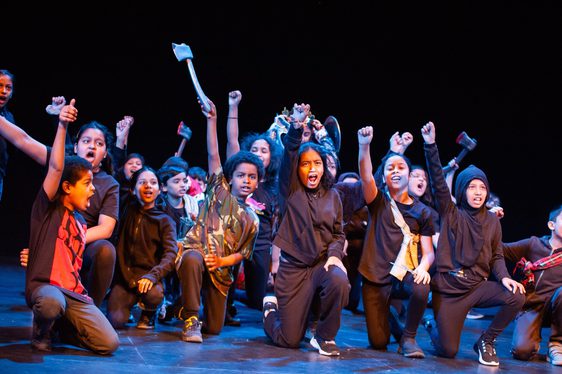News Story

This week our Contact team came together for a staff meeting focused on a topic that's rapidly reshaping how we all work… Artificial Intelligence (AI).
Considering its fast growth and the obvious time management benefits, AI is already embedded in the daily work of some of our departments. From integrated tools in everyday apps like spell check and Siri to more intentional uses in marketing and research, it’s clear that AI is part of our world. But as an arts charity dedicated to supporting young and emerging artists, we wanted to have a thoughtful and transparent conversation about how we use it, and perhaps more importantly, how we don’t.
Key points from the discussion included the need to understand where and how AI is being used across the organisation, and to ensure everyone understands the risks and responsibilities that come with it. Including the environmental impact, considering sustainability is one of our core values. We were a little shocked to find out that...
‘When comparing electricity demand, a single Google search takes 0.3 watt-hours of electricity, while ChatGPT takes 2.9 watt-hours of electricity. That's nearly 10 times as much.’
The Sustainable Agency (IEA, 2024)

We emphasised the importance of never sharing sensitive or identifiable information with open AI systems, and encouraged staff to ask themselves whether they'd be comfortable if the information they gave AI ever became public. The importance of understanding the differences between AI tools is key here. In particular around data sharing and the privacy implications of open-source systems like ChatGPT versus paid platforms with data agreements in place. As AI continues to evolve, we recognised the need to stay flexible, continue to learn and regularly review our policies and practices.
We discussed the growing acceptance of AI in the arts and heritage sector, with funders increasingly open, or even encouraging, its use in funding bids. However, we were clear that AI should never be used to replace actual artists in our work. Especially considering the copyright discussions around AI learning from artists and writers work. That said, we do acknowledge the evolving role of AI in artistic practice, with artists themselves choosing to use it creatively.
Alongside these considerations we also explored the benefits of AI. Especially as we are in the arts and heritage sector which often relies on small teams and limited budgets, so automation and time-saving tools can be of course be a real help. As Kate from our web developers Supercool put it in her article on AI:
'If using AI helps you sell more tickets, deliver more community engagement work and support more new artists, should we avoid it at all costs? Probably not.'
Katie M, Supercool
This was just the start of us thinking about AI. Like so many things, there’s no one-size-fits-all answer but, with a focus on tailoring our approach to fit out values, we’re committed to making thoughtful, sustainable, and artist-centred decisions as we move forward.
You might also like …

Celebrating Panto As That First Spark of Theatre Magic
28 November 2025Last week, Contact’s CEO Jack Dale-Dowd headed to Westminster for a special Parliamentary reception hosted by Arts Council England and the Department for Culture, Media and Sport, at an event recognising the cultural and community value of…
Coram Shakespeare Schools Foundation
20 November 2025Earlier this month, Contact was delighted to welcome back Coram Shakespeare Schools as they marked an incredible 25 years of inspiring young people through the power of theatre. This cultural education charity has long championed…
What Matters To Us, in Oxford Road Corridor's Zine- Autumn Edition
20 November 2025Did you spot us on the front page of Oxford Road Corridor’s latest zine? The piece by our CEO, Jack-Dale Dowd, looks at why the work Contact does matters to young people, our audiences and the wider Manchester community. On the 13th…